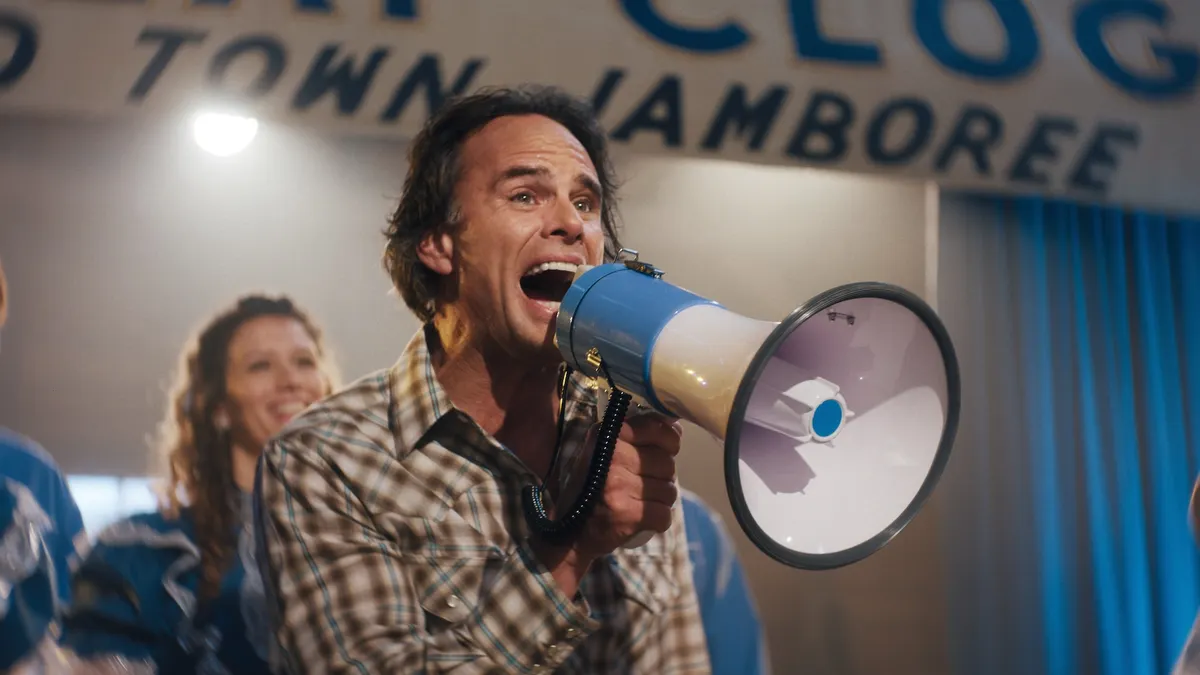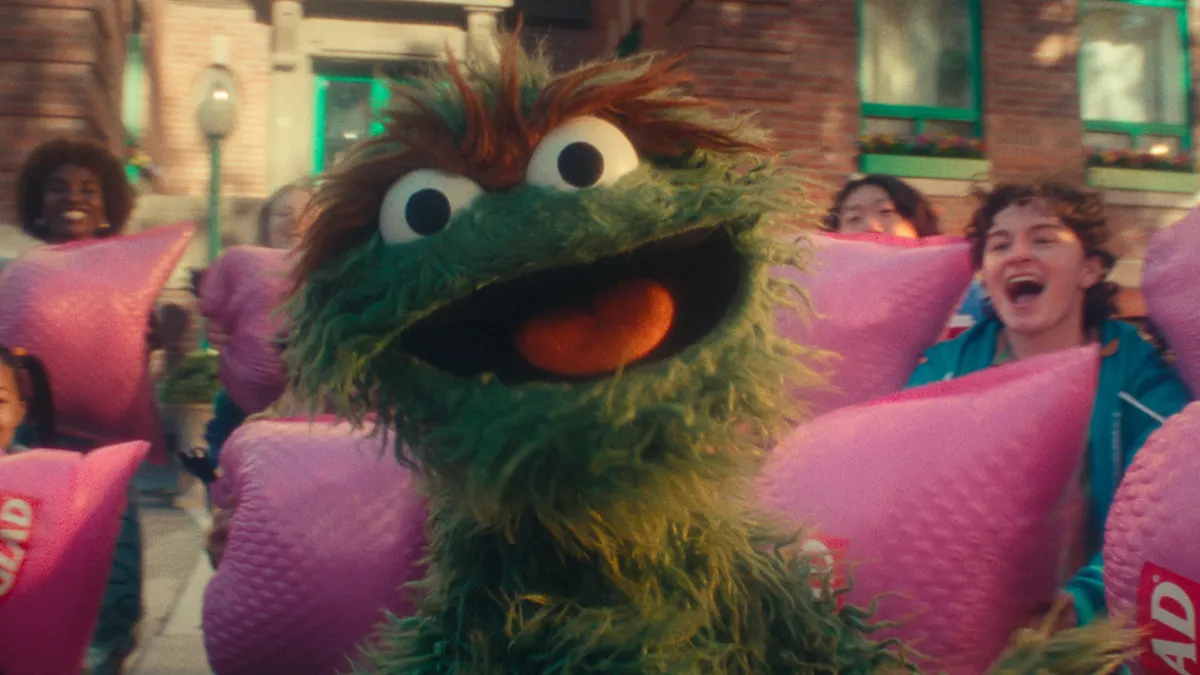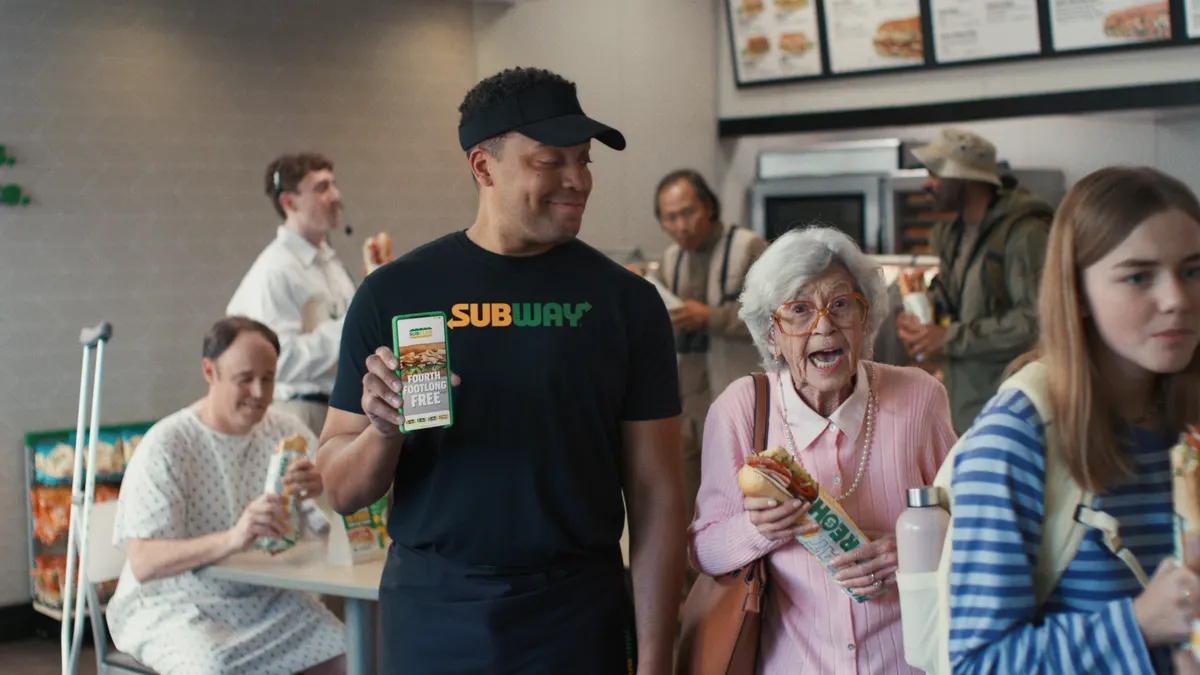Thanksgiving isn't going to take over Black Friday any time soon, but the holiday did smash expectations and set the sales weekend up for success.
Adobe Analytics disclosed that $6.22 billion was spent online by the end of Black Friday, an increase of 23.6% year over year, according to sales results emailed to Retail Dive. More importantly, this holiday season retailers aligned sale prices across multiple days and multiple channels, giving consumers choices of when to spend. Customers can now engage in traditional brick-and-mortar shopping, or they can start early in the comfort of their own homes.
That flexibility may be why there was an overall decrease in brick and mortar foot traffic, according to multiple media reports, and along with it a corresponding reduction in Black Friday horror stories of stampeding customers vying to grab a handful of in-store deals. Black Friday sales don't have to be kept under wraps anymore, and instead can be part of a larger selling strategy that begins on Thanksgiving.
"For the first time online prices on Thanksgiving Day were as low as on Black Friday with consumers taking advantage of those deals in record numbers, making Thanksgiving Day the fastest growing online shopping day," reported Adobe Analytics in a statement emailed to Retail Dive.
The announcement of sales prior to Black Friday drove a shift in consumer behavior. "Brick and mortars are finally realizing, 'You know what? We have to be agnostic as to where we get the sale. We just want the sale.' We saw a lot of that with the online sales coming out early," said Charlie O'Shea, VP senior credit officer at Moody's Investor Service, in an interview with Retail Dive.
"The brick and mortar guys — for years we would ask this question all the time — why are the prices different online than in stores? It made zero sense. You can finally get the in-store doorbusters on Thanksgiving night on the websites. And that's a watershed event," said O'Shea.
This is only the start of the shopping season, as retailers and analysts see how the numbers play out in the weeks following Black Friday. The full reckoning for the big shopping period won't be known until there is a full tally of in-store sales figures. "The sales from this weekend should indicate if they can breathe a sigh of relief because so much of the season's volume comes now, or if they need to ramp up their promotions in December beyond what they've already planned," said Sucharita Kodali, VP, principal analyst at Forrester Research.
With that in mind, here is a list of the retailers that delighted customers and broke records — along with the retailers that crashed and burned.
The winners
Amazon
Amazon was clearly out to win the holiday shopping season when, in early November, it announced an expansion of free holiday shipping to non-Prime members. The e-commerce giant also successfully set the stage to take over more of the toy market share after the end of Toys R Us with the introduction of a paper toy catalog.
As analysts observe shoppers opting for the convenience of an at-home Black Friday experience, Amazon has set the pace for back-end logistics, with consumers expecting fast turnaround times and quick delivery. Amazon entrenched consumers' expectations and pushed box stores, including Walmart and Target, to up their game when it comes to e-commerce and shipping.
The retailer did experience some bumps in Europe over the holiday shopping weekend. Numerous publications on Friday reported warehouse workers in Italy, Germany, Spain and the United Kingdom protested unsafe working conditions and low pay.
Kohl's
Kohl's efforts to reposition the brand via store improvements and a partnership with Amazon reached a crescendo on Thursday when the retailer hit record online sales, selling 60 Instant Pots per minute, reported CNBC.
Shoppers also were able to take advantage of the retailer's "Kohl's Cash" loyalty program. Prior to the holiday, the retailer announced additional rewards, including deals that started Nov. 19 online (Nov. 22 in stores) through Nov. 23 that included $15 in Kohl's Cash for every $50 spent on qualifying purchases.
This is why I love Kohl’s ????????went from $162 to $42 pic.twitter.com/oEyh7p3CHM
— ???? Brittany ????✨ (@itsmebrittanyb) November 24, 2018
Old Navy
Like many apparel retailers, this Black Friday Old Navy offered 50% off purchases. The brand continues to be the driving force behind any of Gap Inc.'s success, even as the retailer's parent company plans on closing hundreds of Gap stores.
But it was a clever promotion that sent this apparel retailer straight to the winner's circle. Sure, Old Navy gave consumers half off their entire purchase. But, the thing that sent people over the edge was a $1 cozy socks. The "One Dolla Holla" sale was in partnership with the Boys & Girls Club of America. For every pair sold Old Navy donated $1 to the nonprofit, up to $1 million.
only takes $1 to make ya girl happy @ old navy pic.twitter.com/bzJwUYq6fT
— Merry Cela ☃️???????? (@OsnapitzCela) November 23, 2018
Old Navy has cozy socks for $1!!! #BlackFriday2018 pic.twitter.com/fZmmx8cQLx
— spice (@xolianet) November 23, 2018
Shoppers were able to purchase socks in-store with a 10 item per-person limit. The campaign proved that the brick-and-mortar promotion that was once the heartbeat of Black Fridays in the past isn't dead. What was once all about electronics can be adapted when customers are delighted — and when the price is right.
The losers
J. Crew
J. Crew offered a generous Black Friday deal with 50% off all online orders. The premise caved, though, when online shoppers weren't able to shop, but were instead met with a "Hang on a Sec" screen that explained that the site was experiencing more traffic than usual. The technical glitch stretched on for most of Black Friday, frustrating consumers — some of whom were eventually able to add items to shopping carts but not able to check out.
How are you not prepared for this?!? I’ve been trying to check out for an hour!!!! Don’t you want my money?!? ????????????????????
— Lindsay Stewart (@Linds8578) November 23, 2018
J. Crew released a statement through social media apologizing for the delays. After eventually fixing the site the apparel retailer decided to extend the 50% off sale through Cyber Monday.
The flub on the biggest shopping day of the year came only days after CEO James Brett announced his resignation at the company.
"It is a brand that has lost its way in terms of uniqueness and value offering," said Lauren Bitar, head of retail consulting at RetailNext. "It's strange that an established retailer who cannot afford to disappoint customers in any manner wouldn't have stress tested the site or have plans in place to throttle traffic."
Lowe's
Lowe's experienced similar technical problems, as its website went dark during the height of Black Friday. Online shoppers were greeted with a message that said the website was "down for maintenance," prompting some buyers to turn to rival The Home Depot to fill orders.
@Lowes busy shopping day of the year and you decide to perform maintenance on your website.. Brilliant! Guess I'll go to @HomeDepot since their websites still up and I can check prices before going.
— JDTinkey (@jdtinkey) November 23, 2018
Sears
With Sears in the midst of Chapter 11 and announcing store closures, it was important that the retailer position itself as a player throughout the holiday season. The brand suffered as a smattering of stories came out about the depressing conditions of physical locations. CNBC declared it a "ghost town," The Winston-Salem Journal wrote of the "sadness" and "nostalgia" surrounding the retailer, and MassLive penned an article regarding products at the Sears at Holyoke Mall and how, "There's more for your life at Sears. But nobody wanted this stuff in their lives."
While Sears tries to rally through its reorganization, a bleak holiday season and dreary media surrounding the brand could heavily impact a store that is hoping for a resurrection.
The mavericks
REI
It was the fourth year that REI decided to #OptOutside, or close stores on Black Friday and encourage staff and consumers to explore the outdoors. This year came with a partnership with The Trust for Public Land — a move that resulted in the company becoming a Twitter trending topic on the largest shopping day of the year.
REI's pushback on Black Friday and support of local parks and public lands has added heat to an anti-consumerism countermovement that's growing. It's also lent itself to great optics, with nonprofits adapting the retailer's own language to describe the day.
On a day of consumerism, let's choose to spend the day outdoors instead. Encourage your friends and family to join you and #OptOutside today! pic.twitter.com/Xr0abXsfgD
— SierraClubWI (@SierraClubWI) November 23, 2018
The New York Public Library
In a surprising move, The New York Library reminded consumers of the best deal in town: 100% off of all books every day. The campaign appeared online as an advertisement in The New York Times and mimicked retail marketing language by announcing "the deal of the season" for an "unlimited time only" and free returns.





















